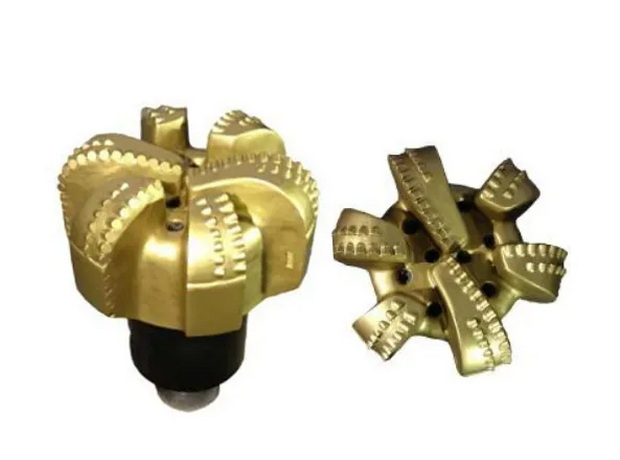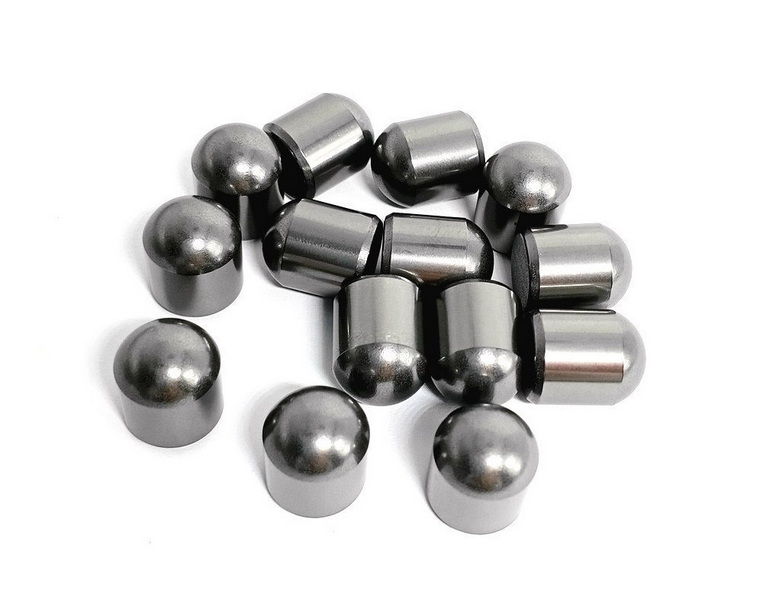Content Menu
● Introduction
● Understanding Tungsten Carbide Button Bits
>> What Are Tungsten Carbide Button Bits?
>> Design and Structure
>> Applications
● Understanding PDC Drill Bits
>> What Are PDC Drill Bits?
>> Design and Structure
>> Applications
● Comparing Performance
>> Rate of Penetration (ROP)
>> Durability and Longevity
>> Cost Considerations
● Advantages of Tungsten Carbide Button Bits
● Advantages of PDC Drill Bits
● Visual Comparison
● Conclusion
● Related Questions
>> 1. What is the main difference between Tungsten Carbide Button Bits and PDC Drill Bits?
>> 2. In what situations should I use Tungsten Carbide Button Bits?
>> 3. Can PDC Drill Bits be used in hard rock drilling?
>> 4. How does the cost compare between these two types of drill bits?
>> 5. What factors should I consider when choosing between these two types of drill bits?
Introduction
In the world of drilling, selecting the right drill bit is crucial for the success of any project. Among the various types of drill bits available, Tungsten Carbide Button Bits and PDC (Polycrystalline Diamond Compact) Drill Bits are two of the most commonly used options. Each type has its unique characteristics, advantages, and applications. This article will delve into how these two types of drill bits compare, exploring their design, functionality, performance in different geological conditions, and cost-effectiveness.

Understanding Tungsten Carbide Button Bits
What Are Tungsten Carbide Button Bits?
Tungsten Carbide Button Bits are drill bits that feature buttons made from tungsten carbide—a highly durable material known for its hardness and resistance to wear. These bits are typically used in hard rock drilling applications due to their ability to withstand high impact and abrasive conditions.
Design and Structure
Tungsten Carbide Button Bits are characterized by their conical or chisel-shaped buttons that are embedded into the bit body. The design allows for effective penetration into hard rock formations. The buttons act as cutting edges that fracture the rock as the bit rotates.
Applications
These bits are widely used in various industries, including:
- Mining: For drilling through hard rock formations.
- Water Well Drilling: To access groundwater in challenging geological conditions.
- Geothermal Drilling: For energy extraction from the earth's heat.
Understanding PDC Drill Bits
What Are PDC Drill Bits?
PDC Drill Bits utilize synthetic diamonds bonded to a tungsten carbide substrate. The diamonds provide exceptional hardness, allowing these bits to shear through rock formations efficiently.
Design and Structure
PDC bits feature a solid body with no moving parts, which differentiates them from traditional rotary bits. The diamond cutters create a continuous cutting surface, enhancing drilling speed and efficiency.
Applications
PDC Drill Bits excel in drilling softer formations and are commonly used in:
- Oil and Gas Industry: For drilling through sedimentary rocks.
- Geological Exploration: To assess subsurface conditions.
- Directional Drilling: Due to their stability and control.
Comparing Performance
Rate of Penetration (ROP)
One of the critical factors in drilling efficiency is the Rate of Penetration (ROP). PDC bits generally achieve a higher ROP compared to Tungsten Carbide Button Bits when drilling through softer materials. This efficiency can significantly reduce overall drilling time and costs.
Durability and Longevity
While PDC bits offer faster drilling speeds, they may wear out more quickly in abrasive conditions. In contrast, Tungsten Carbide Button Bits are designed to withstand harsh environments, making them more durable in hard rock applications.
Cost Considerations
When it comes to initial costs, Tungsten Carbide Button Bits tend to be less expensive than PDC bits. However, considering their longevity and performance in specific applications, PDC bits may offer better value over time due to reduced drilling time and fewer replacements.

Advantages of Tungsten Carbide Button Bits
1. Cost-Effectiveness: Lower initial investment compared to PDC bits.
2. Durability: Higher resistance to wear in abrasive conditions.
3. Versatility: Effective in a wide range of geological formations.
4. Control: Better handling in directional drilling applications due to their design.
Advantages of PDC Drill Bits
1. Higher ROP: Faster drilling speeds in softer rock formations.
2. Efficiency: Continuous cutting action reduces energy consumption.
3. Longer Lifespan: In suitable conditions, PDC bits can last longer than traditional bits.
4. Advanced Technology: Incorporation of innovative designs enhances performance.
Visual Comparison
| Feature | Tungsten Carbide Button Bits | PDC Drill Bits |
|--------------------------------|------------------------------|-------------------------------|
| Design | Conical/Chisel Buttons | Solid Diamond Cutters |
| Rate of Penetration | Moderate | High |
| Durability | High | Moderate |
| Cost | Lower | Higher |
| Best For | Hard Rock | Softer Rock |
Conclusion
In conclusion, both Tungsten Carbide Button Bits and PDC Drill Bits have their unique strengths and weaknesses. The choice between them largely depends on the specific requirements of the drilling project, including geological conditions, budget constraints, and desired performance outcomes. Tungsten Carbide Button Bits are ideal for hard rock applications where durability is paramount, while PDC Drill Bits shine in softer formations where speed is essential.

Related Questions
1. What is the main difference between Tungsten Carbide Button Bits and PDC Drill Bits?
The primary difference lies in their design; Tungsten Carbide Button Bits have moving parts with conical buttons for cutting, while PDC Drill Bits feature a solid body with diamond cutters that shear through rock.
2. In what situations should I use Tungsten Carbide Button Bits?
These bits are best suited for hard rock formations where durability and resistance to wear are critical.
3. Can PDC Drill Bits be used in hard rock drilling?
While they can be used in some hard rock situations, they perform best in softer formations due to their susceptibility to wear under high-impact conditions.
4. How does the cost compare between these two types of drill bits?
Tungsten Carbide Button Bits generally have a lower initial cost compared to PDC Drill Bits; however, PDC bits may offer better long-term value due to their efficiency and speed.
5. What factors should I consider when choosing between these two types of drill bits?
Consider geological conditions, desired rate of penetration, budget constraints, and the specific requirements of your drilling project.
















